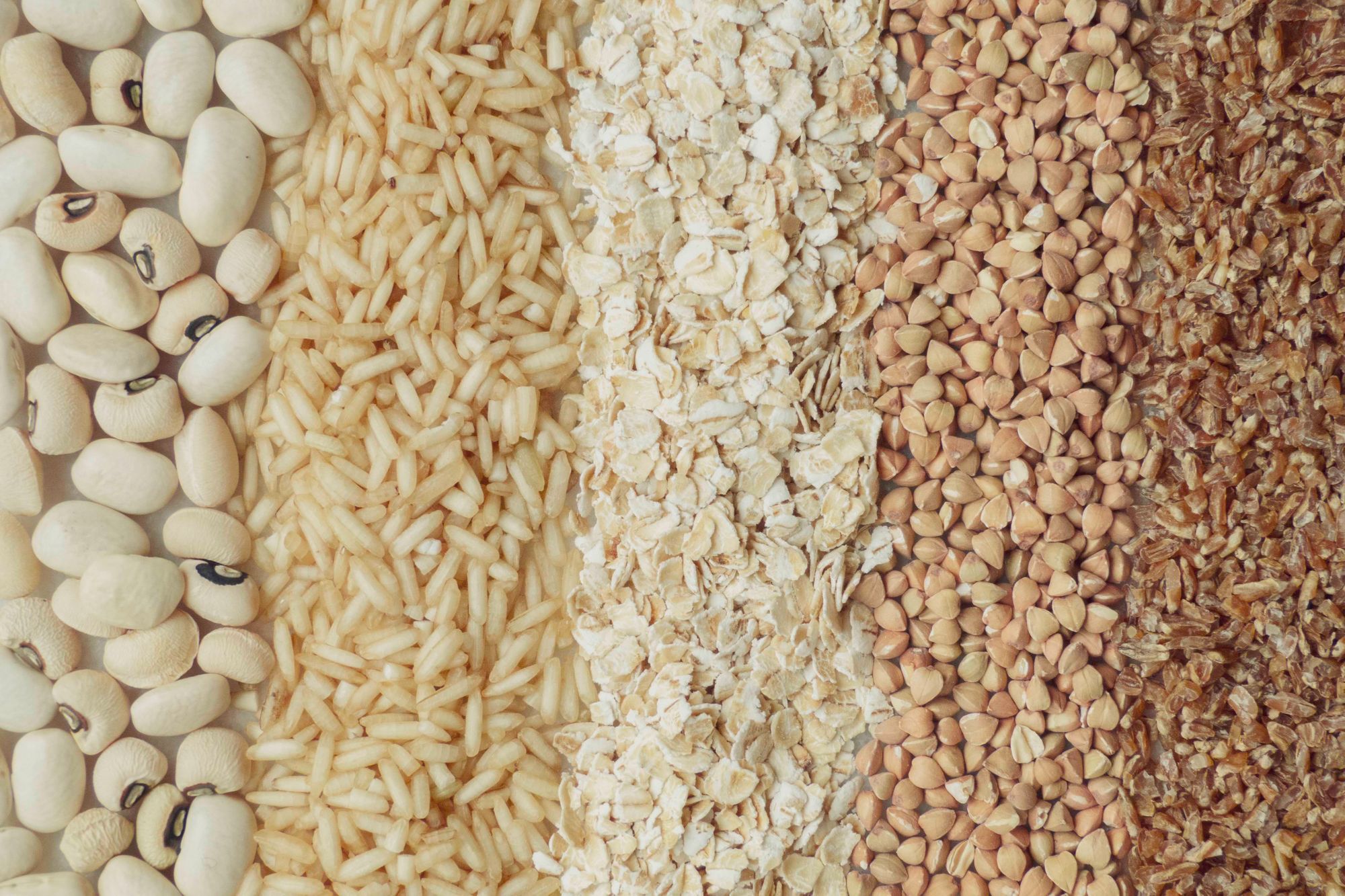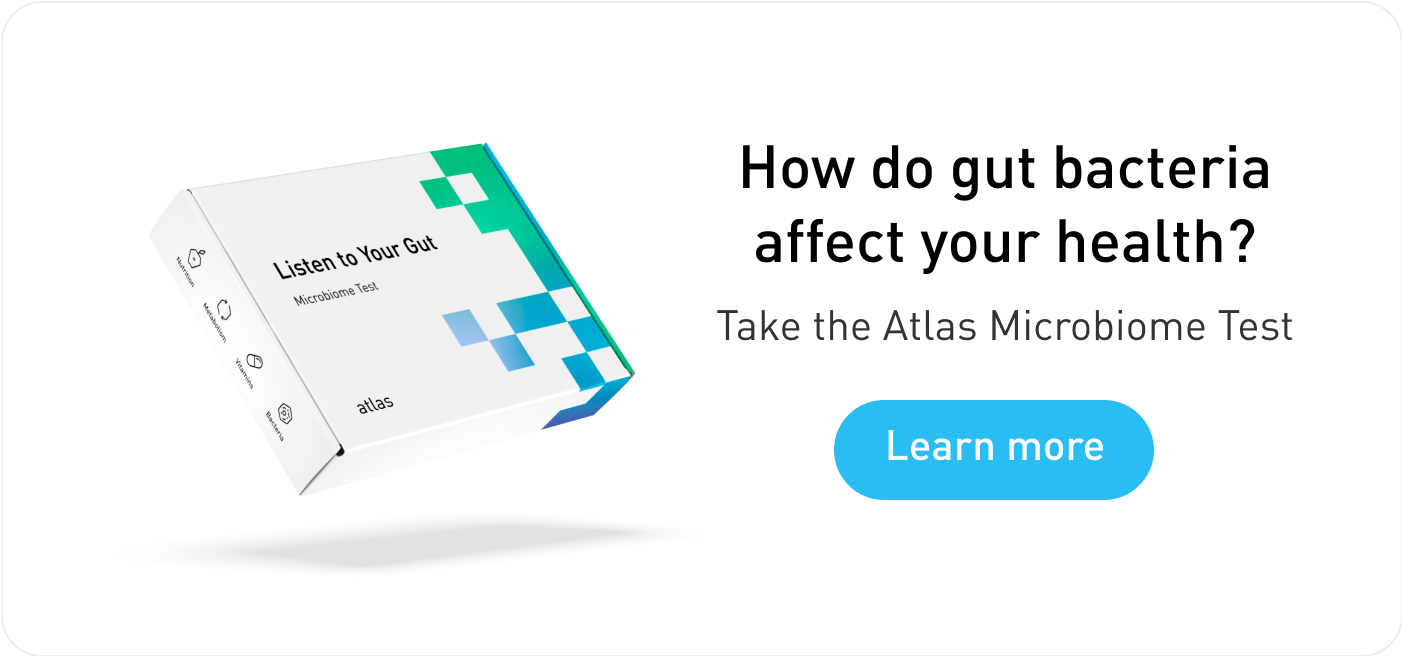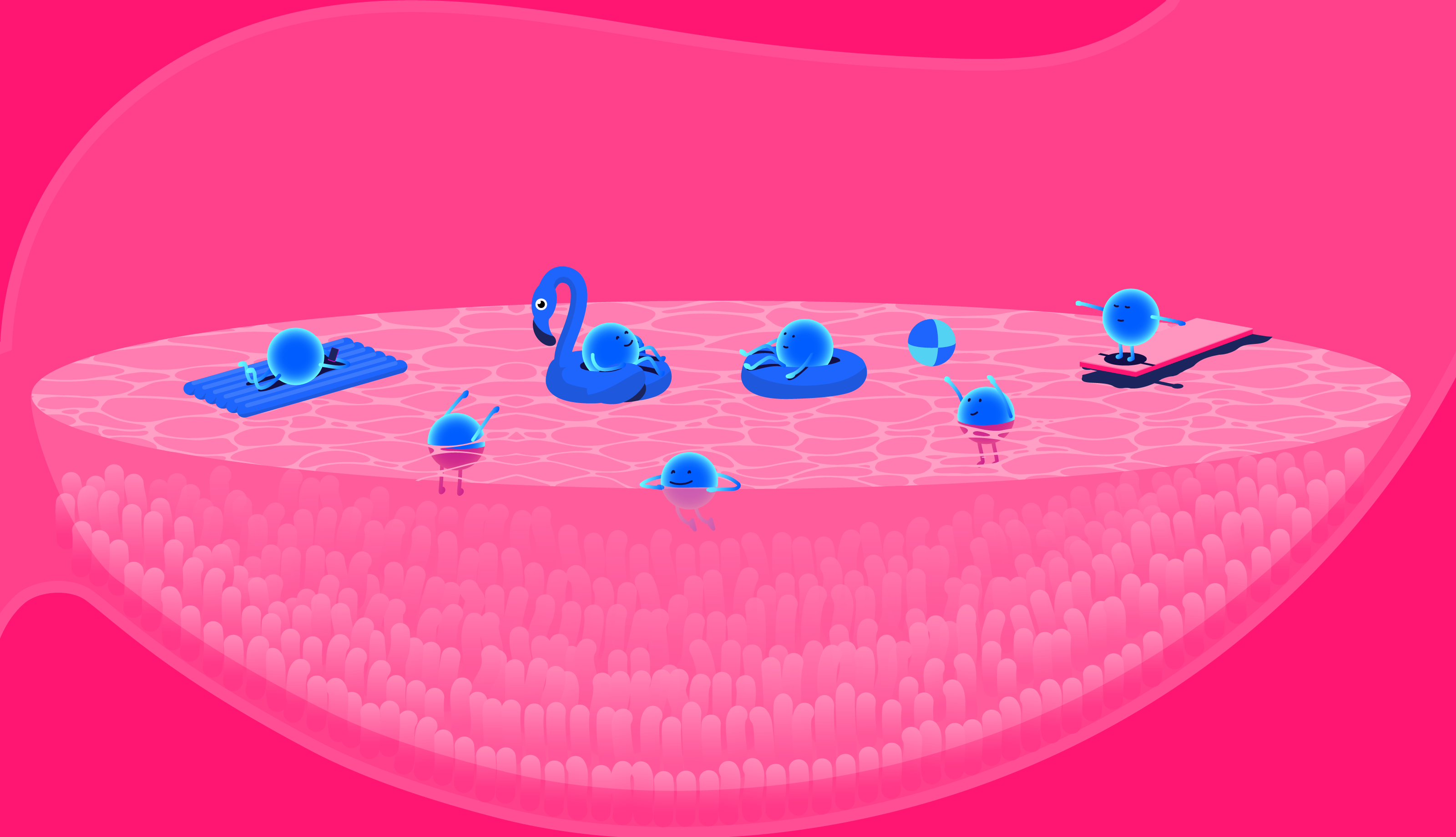Healing foods and natural probiotics are delicious ways to boost your gut health. Check out these simple gut friendly-foods and eating hacks help digestion and promote healthy gut bacteria in 2021.
After a year on lockdown, we’re all a bit more depressed and a bit less motivated, and this has taken a toll on our eating habits. As we kick off 2021, it’s time to set some simple goals with foods to heal your gut and restore healthy gut flora.
These gut health foods and hacks are cheap and easy to implement. You don’t need supplements or exotic root extracts, you just need a shopping list with these gut healing foods that improve gut health and increase good bacteria in the gut naturally.
Table of contents
- 1. Fruit, not fruit juice
- 2. Diversify your carbs
- 3. Snack on popcorn
- 4. Reheat your pasta & potatoes
- 5. Do the 30-foods challenge
- 6. Get some exercise
- 7. Take a gut microbiome test
1. Fruit – not juice
If you think fruit juice is good for you, think again. Sure, fruit juice has vitamins and nutrients, but it’s also laden with sugars that are rapidly absorbed into your bloodstream where they cause your insulin to spike and encourage weight gain. Plus, simple sugars also feed bacteria that are associated with gut inflammation.
Super fruits to improve gut health
These super fruits are prebiotic foods for good bacteria in the gut. Add them to your healthy gut diet to restore your intestinal lining, strengthen your gut wall, and combat inflammation.
| Blueberries | Peaches |
| Apples | Figs |
| Cranberries | Grapefruit |
| Pomegranate | Grapes |
| Pineapple | Kiwis |
☝Find out the perfect foods for your gut bacteria with the Atlas Microbiome Test and get personalised weekly recommendations to improve digestive health.
2. Diversify your carbs

Dishes with grains, brown or wild rice, and legumes are an easy way to increase fiber intake and improve gut health. Grains and legumes are an essential part of your healthy gut bacteria diet because your body can’t digest fiber, but gut microbes can!
Add whole grains or legumes to any meal and it will contain a lot more dietary fiber, which will help get your daily 30 grams. If you need some inspiration, check out Mediterranean, Middle Eastern, and Indian cookbooks for some delicious recipes that restore gut health, like hummus, dahl and bean stew.
Best whole grains and legumes for gut health
Whole grains can take a while to cook, so make them in big batches and freeze portions for future meals. As for legumes, you don’t need to soak lentils, but you should soak beans. If you’re pressed for time, use a pressure cooker to prepare these essential foods for a healthy gut.
| Buckwheat | Quinoa |
| Brown rice | Wild rice |
| Barley | Spelt |
| Oats | Peas |
| Beans | Chickpeas |
| Lentils | Freekeh |
3. Snack on popcorn
Did you know that popped corn is loaded with fiber? It’s even considered a whole grain, which is living proof that healthy food isn’t always boring. A 100g of popped corn contains 10g of fiber, which makes this grain a great addition to your gut health diet.

Just remember to make your popcorn at home, and stay away from the pre-popped corn in bags. Processed popcorn tends to be laden with salt and/or sugar, neither of which (in excess) will fix your gut or heal bad digestion.
☝TIP☝ You can make popcorn in a pan with olive oil (just don’t forget to cover it) and in the microwave. Add some flavour with spices, nutritional yeast and extra virgin olive oil.
4. Reheat your potatoes and pasta
When potatoes and pasta get cold, the starches they contain turn into resistant starch. Resistant starch promotes metabolic health and it can also improve gut bacteria composition. Just cook and cool your potatoes and pasta (preferably overnight in the fridge), reheat them and you’ll be improving gut health with minimal effort!
Resistant starch health benefits
- similar to dietary fibre
- reduces blood sugar levels
- improves insulin sensitivity
- lowers serum cholesterol levels
- it might aid weight loss
5. 30 foods challenge

Plant foods have natural healing properties for the human body. They contain fiber, antioxidants, vitamins, and minerals that your cells need to function optimally. You don’t need to go vegan to heal your gut, you just need a fun little challenge.
The 30-foods weekly challenge is very simple. Try adding 30 different plant foods to your diet every week. It might seem like a lot, but really it’s not. Add these three meals to your weekly menu planner and you’ll already be at 18 out of 30 different plant foods!
| Veggie wrap | Rainbow salad | Vegetable curry |
|---|---|---|
| Tomato | Kale | Potato |
| Avocado | Cucumber | Onion |
| Grilled tofu | Mango | Aubergine |
| Coriander | Cabbage | Cauliflower |
| Hummus | Macadamia nuts | Courgette |
| Arugula | Brown rice | Mint |
5. Fermented foods
You don’t have to buy expensive probiotic supplements to boost your gut flora, all you need are some live-cultured foods and drinks, like kombucha, kefir, yoghurt, and sauerkraut. These fermented foods are made by good bacteria, like Lactobacillus, which have benefits for your digestive health.
Make them at home or buy fermented foods that mention live cultures and raw on the label. If you’re buying them from a shop, always check the label to make sure they haven’t been pasteurised (which eliminates most bacteria) and that they don’t have added sugars. Here are some common fermented foods for inspiration:
| Yoghurt | Milk kefir |
| Natto | Kimchi |
| Sauerkraut | Kombucha |
6. Get some exercise
You don’t have to join a gym or follow Joe Wicks and lockdown workouts, you just need to get moving. Cardiovascular exercise like brisk walking, jogging, cycling, swimming, dancing, and playing socially-distanced badminton will do the trick.
Exercise is great for improving gut health because it literally gets your gut moving, which can solve constipation. Plus, working out may even help you get good gut bacteria. That’s right, sporty people have happier microbiomes than couch potatoes. Studies even show that microbes produce substances that soothe an inflamed gut!
7. Take a gut microbiome test (UK)
The Atlas Microbiome Test analyses the bacteria in your gut. You get a full report with results about your diversity, butyrate and vitamins (for inflammation), fiber break-down, as well as personalised recommendations of foods that heal your gut microbiome.
| Report | What you'll learn |
|---|---|
| Disease protection | See how your microbes protect you from diseases like Crohn’s and ulcerative colitis |
| Microbiome diversity | Discover your diversity score for bacteria living in your gut |
| Butyrate synthesis potential | Find out if your bacteria are making enough butyrate to keep your gut healthy |
| Microbiome enterotype | See what your microbiome says about your diet |
| Probiotics & beneficial bacteria | Meet the probiotic bacteria in your gut and see if you have enough of them |
| Dietary fiber | Discover how well your gut microbes break down different dietary fibres found in food |
| Vitamin synthesis | Gut microbes produce 8 different vitamins: how well are they working for you? |
| Microbiome ancestry | Find out with which nationality or ethnic group your microbes have the most in common |
☝Sign up for Atlas blog updates and get 10% off the Atlas Microbiome Test☝.

















